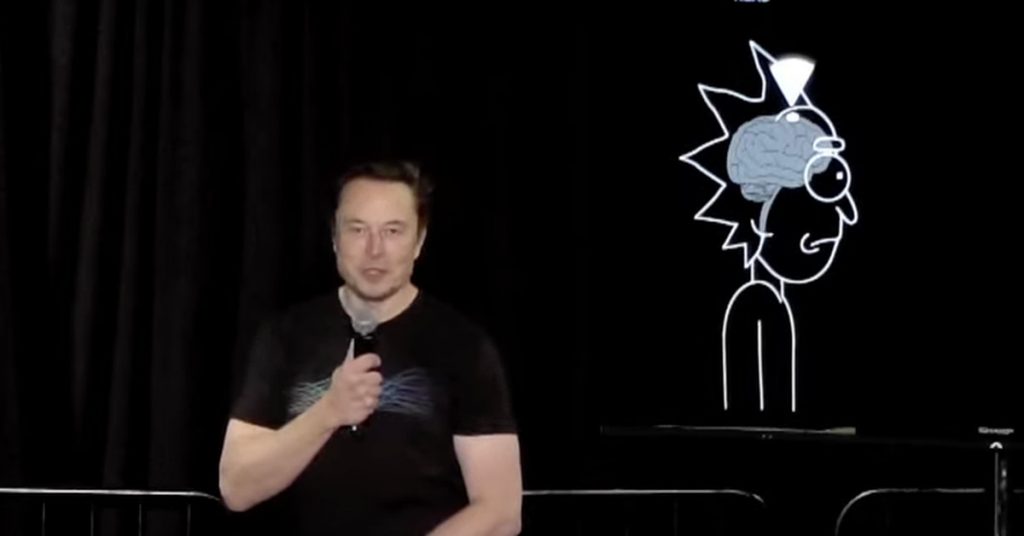
At a ‘show and tell’ event on Wednesday, Elon Musk said that his brain-computer interface company, Neuralink, could implant one of its devices in someone’s head within the next six months — meaning it’s not happening this year. He also claimed that he would get the device implanted in his own head at some point in the future.
During the presentation, Musk said that the company had submitted most of the paperwork needed for a human clinical trial to the Food and Drug Administration, which regulates medical devices in the United States. Previously, Musk had said that he’d hoped for human trials to begin in 2020, and then 2022. Now, that’s slipped to at least 2023.
Neuralink’s goal is to create a device that can be implanted in the brain, and use it to control a computer with brain activity. Back in 2019, Musk revealed that the company was testing its device in monkeys. In 2020, it trotted out pigs with the implants. And last year, Neuralink released a video showing a monkey playing Pong with its brain. This year, the monkeys are back. In a video demonstration, one of them helped “type” the phrase ‘welcome to show and tell’ using their implant by focusing on highlighted words and letters. Another video showed how the monkeys were trained to charge the devices by sitting under a wireless charger.
Later in the presentation, Neuralink researchers also showed off a pig on a treadmill, which they said was helping them study how to address mobility issues in people in the future.
The Neuralink devices themselves are small, with multiple flexible “threads” that can be inserted into the brain. “It’s like replacing a piece of your skull with a smartwatch, for lack of a better analogy,” Musk said.
In about 15 minutes, 64 of these “threads” can be implanted into the brain using a robotic system, said DJ Seo, the vice president of Implant and co-founder of Neuralink, during the presentation — while using a mannequin to show how the process might work.
The reason for the robot surgeons comes down to just how tiny those threads are. “Imagine taking a hair from your head and sticking it into jello covered by saran wrap, doing that to a precise depth and precision, and doing that 64 times in a reasonable amount of time,” said Christine Odabashian, the leader of Neuralink’s hardware insertion team.
The company’s demos in 2019 and 2020 were designed as recruitment events, and this one is no different; the company admitted recruiting was its primary goal of the evening. Neuralink is currently looking to fill many different kinds of jobs as it moves from “prototype to product”, Musk said at tonight’s show and tell.
The event was mostly a technical presentation of the device, showcasing how the system was built, challenges the team has faced, how the tech has improved so far, and what developments are coming next. Researchers at the company said they were developing treatments that could either help improve or restore vision, or restore movement in people with paralysis. On the tech side, the company has ambitions to make sure that the device itself can be upgraded easily.
“I’m pretty sure you would not want an iPhone 1 in your head if an iPhone 14 was available,” Musk said.

 Latest Breaking News Online News Portal
Latest Breaking News Online News Portal




